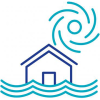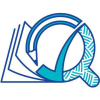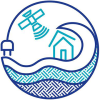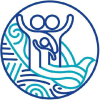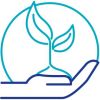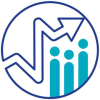Table CNT4.1:
Year 4 Numeracy performance: Are standards being met?
Distribution of Year 4 students by proficiency levels, SIS, PILNA 2021.
Table CNT4.2:
Year 4 student numeracy proficiency relative to the region
Distribution of Year 4 students numeracy proficiency relative to the region, SIS, PILNA 2021
Table CNT6.1:
Year 6 Numeracy performance: Are standards being met?
Distribution of Year 6 students by proficiency levels, SIS, PILNA 2021.
Table CNT6.2:
Year 6 student numeracy proficiency relative to the region
Distribution of Year 6 student numeracy proficiency relative to the region, SIS, PILNA 2021
Table CRT4.1:
Year 4 Reading performance: Are standards being met?
Distribution of Year 4 students by proficiency levels, SIS, PILNA 2021
Table CRT4.2:
Year 4 student reading proficiency relative to the region
Distribution of Year 4 student reading proficiency relative to the region, SIS PILNA 2021.
Table CRT4.3:
Year 4 Reading distribution by proficiency scores and gender
Distribution of Year 4 students' proficiency in reading by gender, SIS, PILNA 2021
Table CRT6.1:
Year 6 Reading performance: Are standards being met?
Distribution of Year 6 students by proficiency levels, SIS, PILNA 2021
Table CRT6.2:
Year 6 student reading proficiency relative to the region
Distribution of Year 6 student reading proficiency relative to the region, SIS PILNA 2021.
Table CRT6.3:
Year 6 Reading distribution by proficiency scores and gender
Distribution of Year 6 students' proficiency in reading by gender, SIS PILNA 2021.
Table SLT3.1:
Percentage of students attending schools where instruction was hindered by poor resourcing
Percentage of students attending schools where instruction was hindered by poor resourcing
Table SLT3.2:
Percentage of students attending schools where instruction was hindered by external factors
Percentage of students attending schools where instruction was hindered by external factors
Table SLT3.3:
Percentage of students attending schools that had measures to provide continuity of learning during school closure
Percentage of students attending schools that had measures to provide continuity of learning during school closure
Table SLT3.5:
Percentage of students who attended schools where leaders frequently experience issues related to well-being
Percentage of students who attended schools where leaders frequently experience issues related to well-being
Table SLT3.6:
Percentage of students who attended schools where leaders expressed satisfaction in their job
Percentage of students who attended schools where leaders expressed satisfaction in their job
Table STT1.1:
Percentage of students who attended ECE
Students who attended at least one year at ECE vs those who did not attend
Table STT1.2:
ECE Attendance by year level
ECE attendance and duration of attendance, SIS, PILNA 2021
Table STT1.3:
Mean achievement score of Year 6 students versus ECE attendance
Mean achievement score of Year 6 students vs ECE attendance, SIS, PILNA 2021
Table STT1.4:
Percentage of students with the highest parental education level
Percentage of students with the highest parental education level
Table STT1.5:
Average achievement of students by parental highest education in year level
Average achievement of students by parental highest education in year level
Table STT1.6:
Average achievement of students by household wealth and year level
Average achievement of students by household wealth and year level
Table STT1.7:
Percentage of students whose caregivers frequently support their children
Percentage of students whose caregivers frequently support their children
Table STT1.8:
Percentage of students agreeing with statements reading, writing, mathematics and school
Percentage of students agreeing with statements reading, writing, mathematics and school
Table STT1.9:
Percentage of students that frequently experience issues related to wellbeing
Percentage of students that frequently experience issues related to wellbeing
Table TT2.10:
Percentage of students whose teachers express confidence in teaching numeracy in 2018 and 2021
Percentage of students whose teachers express confidence in teaching numeracy, SIS PILNA 2018 and 2021
Table TT2.11:
Percentage of students whose teachers frequently experience issues related to well-being
Percentage of students whose teachers frequently experience issues related to well-being
Table TT2.12:
Percentage of students whose teachers expressed satisfaction in their jobs
Percentage of students whose teachers expressed satisfaction in their jobs
Table TT2.2:
Percentage of students with access to literacy and numeracy textbooks in class
Percentage of students with access to litercay and numeracy textbooks in class, SIS PILNA 2021.
Table TT2.3:
Proportion of student with teachers who agreed with each statement
Proportion of student with teachers who agreed with each statement
Table TT2.4:
Percentage of students whose teachers agree with statements on time
Percentage of students whose teachers agree with statements on time, SIS PILNA 2021
Table TT2.5:
Average percentage of students affected by various difficulties as identified by teachers
Average percentage of students affected by various difficulties as identified by teachers, SIS PILNA 2021.
Table TT2.6:
Percentages of students experiencing particular difficulties as reported by students and identified by teachers
Percentages of students experiencing particular difficulties as reported by students and identified by teachers
Table TT2.7:
Percentage of students whose teachers express confidence in teaching literacy
Percentage of students whose teachers express confidence in teaching literacy, SIS PILNA 2021
Table TT2.8:
Percentage of students whose teachers express confidence in teaching literacy in 2018 and 2021
Percentage of students whose teachers express confidence in teaching literacy in 2018 and 2021
Table TT2.9:
Percentage of students whose teachers express confidence in teaching numeracy, 2021.
Percentage of students whose teachers express confidence in teaching numeracy, SIS PILNA 2021.
JavaScript has been disabled in your browser.
Please enable JavaScript to experience the full functionality of our website.
This website requires a more up-to-date browser.
Your online security & browsing experience on this website may be affected by not having an updated browser. Upgrade your browser: Mozilla Firefox, Google Chrome, Microsoft Edge, or Apple Safari
